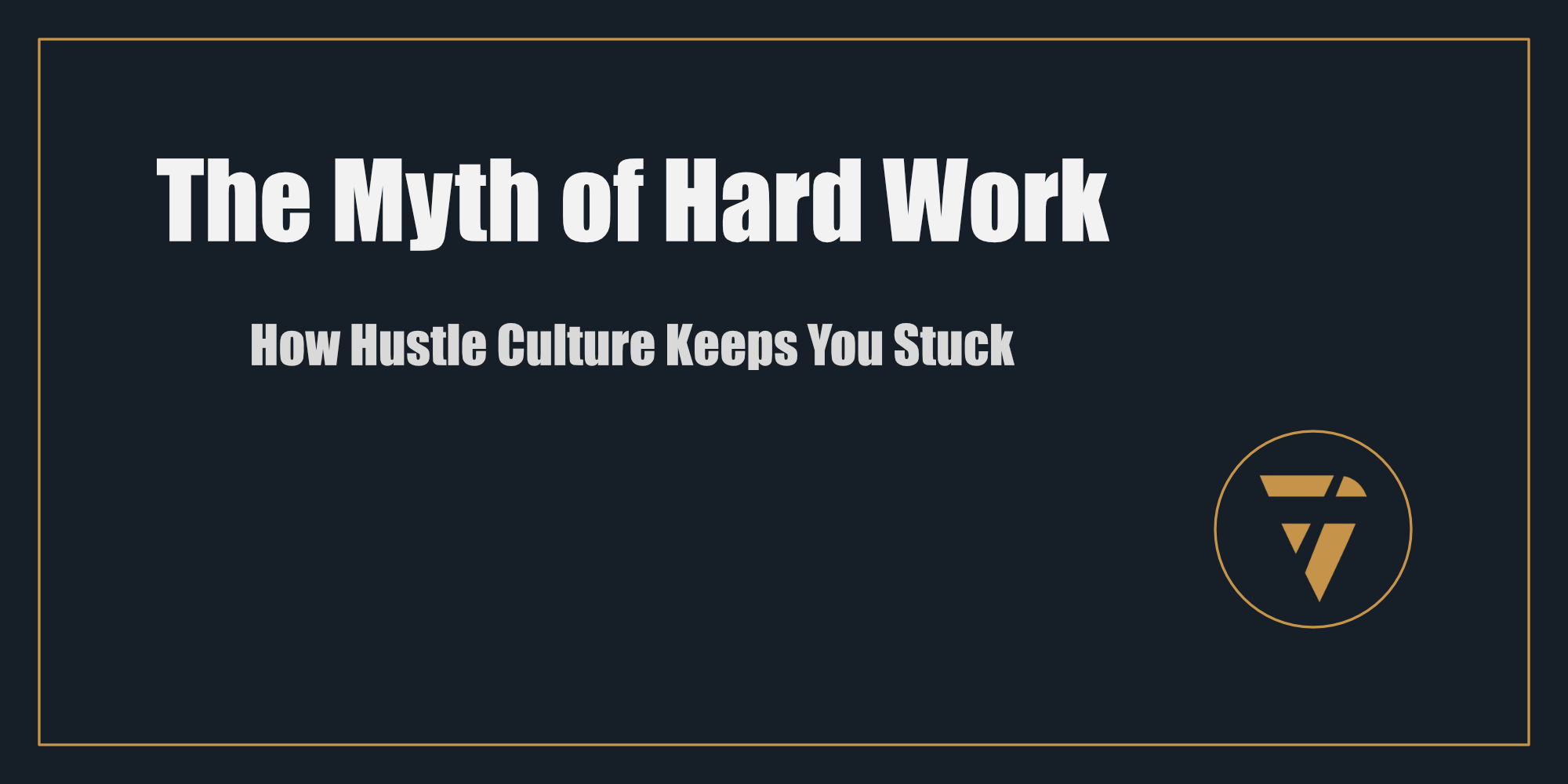The Myth of Hard Work
How Hustle Culture Keeps You Stuck

What if "hard work" isn’t the path to success, but the obstacle?
From motivational posters in office break rooms to social media influencers preaching 5 a.m. routines, the myth of hard work dominates our culture. It promises that with enough effort, anyone can rise above their circumstances. But for most, this isn't reality, it's a cleverly constructed illusion designed to maintain the status quo.
Here’s the truth: The idea that "hard work" alone guarantees success is a narrative created by those who profit from your grind.
The Hidden Costs of the Hard Work Myth
The glorification of relentless effort isn’t just an innocent motivational tool, it’s a societal expectation with profound consequences. Here’s how the hard work myth keeps you stuck:
- Burnout Culture: The belief that working harder equals doing better leads to mental health crises and declining well-being.
- Economic Inequality: It shifts the blame for systemic failures onto individuals, ignoring barriers like discrimination, lack of access, or inherited wealth.
- Environmental Damage: Productivity-at-all-costs thinking often prioritizes short-term gains over long-term sustainability.
And yet, those at the top—CEOs, investors, and policymakers—reap the rewards of this unbalanced system while selling us on the virtue of "hustle."
The Origins of the Myth
The notion of hard work as a moral good didn’t arise by accident. It has roots in the Protestant work ethic, industrial capitalism, and the American Dream. These narratives shaped societies, convincing people that their labour defined their worth.
But consider this: if hard work alone created success, why are some of the hardest-working people—factory labourers, farmhands, gig workers—also some of the least compensated?
The answer lies in who controls the narrative. While we’re taught to glorify individual effort, the systems around us are designed to consolidate wealth and opportunity for the few.
Breaking Free: What Does Success Really Look Like?
It’s time to redefine success. Instead of measuring value by hours logged or tasks completed, imagine a world where:
- Well-being is the Goal: Mental health, work-life balance, and community connection are prioritized over grind culture.
- Equity Drives Progress: Systems are designed to level the playing field, removing barriers that hard work alone can’t overcome.
- Collaboration Over Competition: Success becomes about collective achievements rather than individual conquests.
In countries with shorter workweeks or universal basic income experiments, we see glimpses of what’s possible. Workers are more productive, creative, and fulfilled, not despite working less, but because of it.
Your Next Step: Question the Narrative
Ask yourself:
- How has the hard work myth shaped your choices and beliefs?
- What would your life look like if you measured success differently?
- How can you challenge these systems—in your workplace, your community, and your mind?
It starts with recognizing the myth for what it is. Then, it’s about advocating for systems that value people over profit and effort over exhaustion.
Join the Conversation
What do you think about the myth of hard work? How has it impacted your life, positively or negatively? Share your thoughts, or connect with me directly to explore how we can rewrite the rules together.
If this resonated with you, subscribe for more insights on redefining success and building a more equitable future. Let’s dismantle the hustle myth, one story at a time.
This Substack is reader-supported. To receive new posts and support my work, consider becoming a free or paid subscriber.
This is what I’m working on. Tell me what you think, I enjoy the conversation! Subscribe and follow the work in real time.
Thanks!
B
Hard work doesn’t guarantee success, it guarantees exhaustion. The real winners? Those who profit from your grind while selling you the dream. It’s time to question who benefits from the hustle.
What could success look like without the myth?
PS -





